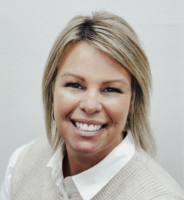The State Board of Education wants to know more about a fast-growing virtual school in rural Southeast Idaho that continues to collect millions of state tax dollars and add thousands of students.

“We want to better understand the dramatic enrollment that has occurred at the school in recent years and the reasons for it,” State Board President Debbie Critchfield said of the Oneida School District’s Idaho Home Learning Academy, which has added more than 4,500 new students this school year alone.
Critchfield outlined her interest in IHLA’s explosive growth and partnerships with for-profit companies in a recent letter to State Superintendent Sherri Ybarra, asking the State Department of Education to take a closer look at the school.
Since 2017, IHLA’s enrollment has exploded to some 7,000 students from across Idaho. The unprecedented influx has brought Oneida, which serves some 800 brick-and-mortar students, massive state funding windfalls, even though IHLA students don’t walk the school’s halls.
Much of the money ultimately flows to three private companies that supply learning materials and coursework to participating families:
- Utah-based Tech Trep Academy.
- Idaho-based Overture Learning.
- Utah-based Harmony Educational Services.
IHLA accounted for $15.4 million earmarked for the district in 2019-20. That number could jump by another $20 million this school year, as families have flocked to remote learning programs during the pandemic.
Oneida superintendent Rich Moore told EdNews last week that he expects to pay the companies $16 million this school year.
EdNews has tracked IHLA’s unprecedented growth and unorthodox operations since 2017; click here for more on how it works.
About six weeks ago, Critchfield told Ybarra some parents reached out to her about a “homeschool program that (pays) families for a device and curriculum to teach their students at home.”
Unfamiliar with such a program, Critchfield contacted Idaho Public Charter School Commission director Jenn Thompson to see if parents were referring to a virtual charter school.
Thompson reported back that the school in question was IHLA.
“The information (Thompson) shared raised some additional questions,” Critchfield told Ybarra.
Thompson on Thursday confirmed providing Critchfield with information about IHLA and pointed to two areas that might concern state leaders:
- The level at which IHLA’s for-profit companies operate the school.
- The school’s ability to provide specialized services to students, such as special education services.
Moore and IHLA principal Terri Sorenson have defended IHLA for years. They point to benefits, such as certified remote teachers and standards-aligned coursework, which wouldn’t be available to homeschoolers otherwise.
Those services are in even greater demand during the pandemic, they recently stressed.
Despite these added services, IHLA’s students struggle academically compared to their brick-and-mortar peers — as do students in Idaho’s virtual charters.
Moore didn’t respond to questions about the State Board’s plan to gather information from IHLA. Critchfield told EdNews Thursday that she had “just received” some information back from Ybarra about the school and would need more time to review it.
EdNews has requested correspondence between the SDE and Oneida regarding IHLA.
